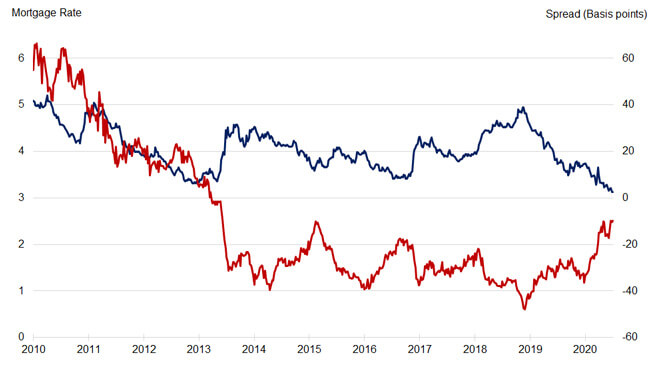Understanding Jumbo Loan: What You Need to Know for Luxury Home Purchases
Understanding Jumbo Loan: What You Need to Know for Luxury Home Purchases
Blog Article
Discovering the Advantages and Characteristics of Jumbo Loans for Your Next Home Purchase Decision
As the genuine estate market advances, comprehending the ins and outs of jumbo car loans becomes significantly relevant for prospective homebuyers taking into consideration high-value properties. To totally appreciate exactly how big finances can influence your home acquisition approach, it is crucial to explore their crucial features and benefits in higher detail.
What Is a Jumbo Finance?

Jumbo fundings are typically used by customers looking for to buy high-value residential properties or homes in pricey markets. jumbo loan. Given the bigger amounts borrowed, loan providers generally enforce more stringent credit scores requirements, consisting of higher credit history, lower debt-to-income proportions, and bigger down repayments. The rates of interest on big car loans might be somewhat greater than those on adjusting financings, mirroring the enhanced risk for lenders
Furthermore, the authorization procedure for a jumbo funding can be extra time-consuming and intricate, as lenders require substantial paperwork to analyze the customer's financial stability. Comprehending these nuances is essential for potential home owners considering a big car loan for their building funding demands.
Secret Advantages of Jumbo Fundings
One considerable advantage of big fundings is their ability to fund higher-priced homes that exceed adjusting financing restrictions. This attribute makes them an attractive option for customers looking to purchase deluxe homes or properties in high-cost locations where costs commonly exceed conventional funding limits.
In addition, jumbo car loans usually include flexible terms and affordable rate of interest, enabling borrowers to tailor their funding to suit their distinct monetary situations. jumbo loan. This flexibility can include choices for adjustable-rate home mortgages (ARMs) or fixed-rate car loans, offering buyers with the capacity to manage their regular monthly payments according to their preferences
An additional benefit is that big loans do not call for exclusive home loan insurance coverage (PMI), which can dramatically lower the general expense of the loan. With PMI typically being a considerable expense for standard finances with low deposits, avoiding it can lead to substantial cost savings in time.
Additionally, borrowers of jumbo car loans usually have access to greater finance amounts, allowing them to buy homes that meet their way of life needs. This access encourages buyers to act emphatically in competitive realty markets, safeguarding their desired homes extra efficiently. On the whole, jumbo fundings offer crucial advantages for those looking for to fund premium properties.
Qualification Needs for Jumbo Finances
Jumbo fundings come with particular qualification needs that prospective borrowers need to fulfill to secure financing for high-value residential properties. Unlike traditional financings, which have set restrictions based upon the conforming loan restrictions established by government-sponsored entities, jumbo loans surpass these limits, demanding more stringent requirements.

Furthermore, big loans usually require a considerable deposit, often ranging from 10% to 20% of the acquisition cost, depending upon the lending institution's policies and the customer's monetary situation. Money reserves are also thought about, with several lending institutions expecting borrowers to have a number of months' worth of home loan payments conveniently offered. Detailed documents of income and properties will be needed to sustain the funding application. Meeting these eligibility needs can position consumers positively in securing a jumbo loan for their preferred residential property.
Comparing Jumbo Lendings to Traditional Financings
Understanding the distinctions in between big lendings and conventional car loans is essential for property buyers browsing the premium realty market. their explanation Big car loans exceed the adhering funding restrictions established by the Federal Real Estate Money Agency (FHFA), which implies they are not eligible for acquisition by Fannie Mae or Freddie Mac. This leads to various underwriting requirements and demands for debtors.
In comparison, standard fundings typically follow these restrictions, enabling a more structured authorization procedure. Big car loans usually call for stricter credit report ratings, bigger down payments, and better monetary books. For example, while a traditional funding may need a down repayment of as little as 3% to 5%, big fundings typically demand a minimum of 10% to 20%.
Rates of interest on jumbo lendings may differ from those of traditional car loans, often being slightly higher because of the boosted danger lending institutions think - jumbo loan. Nevertheless, the capacity for substantial funding can be advantageous for purchasers looking for deluxe buildings. Ultimately, comprehending these differences makes it possible for homebuyers to make informed decisions, straightening their funding alternatives with their unique investing in needs and financial scenarios
Tips for Securing a Jumbo Funding
Safeguarding a jumbo finance requires cautious preparation and prep work, as lending institutions often impose stricter demands contrasted to traditional lendings. To improve your possibilities of authorization, start by examining your credit history and dealing with any kind of concerns. A rating of 700 or greater is commonly chosen, as it shows credit reliability.
Next, gather your financial paperwork, consisting of tax obligation returns, W-2s, and financial institution statements. Lenders typically need thorough proof of income and assets to examine your capacity to repay the lending. Maintaining a reduced debt-to-income (DTI) proportion is also crucial; objective for a DTI below 43% to improve your application's competition.
Additionally, think about making a bigger down repayment. Numerous lending institutions look for at the very least 20% down for big finances, which not only reduces your car loan quantity however also signals economic security. Engaging with an educated home loan broker can offer invaluable understandings into the procedure pop over here and assist you navigate numerous lending institution alternatives.

Final Thought
In recap, jumbo lendings existing substantial benefits for homebuyers seeking buildings that go beyond standard car loan limitations. With affordable rate of interest, adaptable terms, and the lack of private mortgage insurance coverage, these financings can lead to substantial cost savings. Potential consumers have to browse more stringent eligibility requirements to obtain favorable terms. Extensive understanding of both the requirements and benefits connected with big lendings is important for making notified home purchase choices in a competitive real estate market.
The passion rates on big financings may be slightly greater than those on conforming financings, showing the increased threat for lenders.
While a standard finance might require a down repayment of as little as 3% to 5%, jumbo financings generally require a minimum of 10% to 20%.
Interest prices on big fundings may differ from those of conventional loans, often being slightly greater due to the raised threat loan providers presume.Protecting a jumbo loan requires careful planning and prep work, as lenders usually enforce more stringent requirements compared to standard car loans. Many lenders seek at the very least this post 20% down for jumbo fundings, which not only decreases your loan quantity yet also signals financial stability.
Report this page